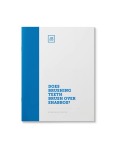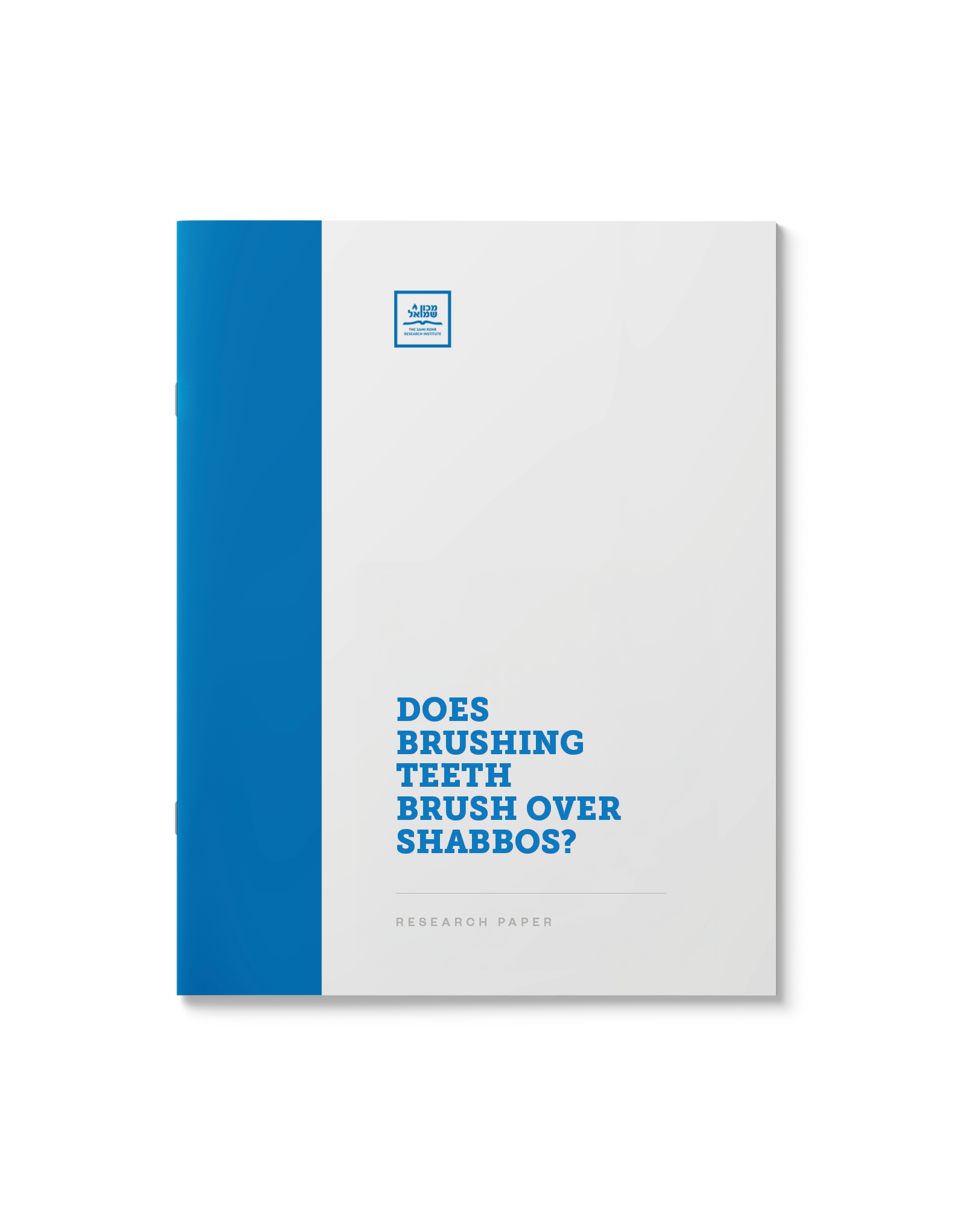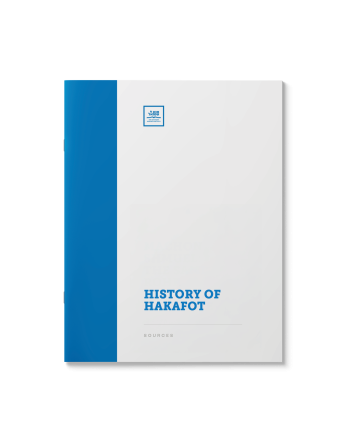Does Brushing Teeth Brush over Shabbos?
$39.00
Brushing teeth triggers various halachic concerns about the violation of Shabbat. This paper deconstructs the practices of oral hygiene to examine if there are issues of chovel, schita, uvdin d’chol and memareach.
| Language | English |
|---|---|
| Paper Type | Research Paper |
| Pages | 8 |
Related Products
“If not for the last minute, nothing would get done.”
The Mishna (Avot 5:6) lists a number of unique items created on that first Friday during Bein Ha-Shmashos (the twilight hour between shkia and tzeis hakochavim).
If our Shabbos observance — characterized by abstaining from creative labor — is to be a reflection of Hashem’s abstention from creation, why must we not engage in creative labor during Bein Ha-Shmashos?
Some fascinating perspectives culled from the Midrash, Kabalah and Chassidus.
“You shall observe My statutes . . and live by them” (Vayikra 18:5).
What halachic guidelines are invoked to protect the well-being of the ill and infirm on fast days? What medical advice should be sought out in advance, and what questions need to be asked? When ought one resort to ‘shiurim’? How are they calculated?
Reviewed by a Moreh Hora’ah B’Poel
The shofar is an ancient musical instrument used to call the Jewish people together. It was blown to announce the new month, before the commencement of battle, and other occasions. It is still used on Rosh Hashanah and the closing of Yom Kippur to call the people to repentance. When was the shofar used for the first time?
One of the the central themes of Chanukah is Pirsumei Nisa, the public display and celebration of the holiday. Around the world, Menorah’s are kindled in Malls, at City Halls and all sorts of public places. May one recite the traditional blessing over the Chaukah lights if they are being lit in the city square and not in the privacy of one’s home or Shul?
Shabbos is a day of physical delight and spiritual rejuvenation. Each of the Shabbos meals is designed with taste and splendor, which elevates the simple act of eating to being a Heavenly experience.
Of what mystical significance are the three halachically-mandated meals on Shabbos? How does Jewish mysticism transform our appreciation for the Shabbos in general, and our perception of the third Shabbos meal in particular?
Further restricting an already slimmed down Pesach diet is not something anybody would eagerly embrace. But the Jews of medieval Ashkenazic communities adopted the stringency of avoiding the consumption of legumes throughout the duration of Pesach. The question is, why? How was this ban treated for the centuries that have since passed? Was it adhered to equally in times of prosperity and adversity?
This paper features a curricular overview of the mitzvah of experiencing Oneg Shabbos.
One of our most festive Holidays, an all-out celebration of the Torah, has neither Scriptural nor Talmudic basis.
These sources trace the development of this custom as well as many others related to Simchas Torah:
The yearly schedule for completing the reading of the Torah, the ensuing celebration and unique liturgy read on this occasion, the custom of dancing and circling the Bima seven times, other celebratory expressions such as marching with candles, torches and much more.
Also includes a collection of anecdotes regarding the importance of experiencing joy during this event.
(Hebrew)
The water used to bake Matzah must be mayim shelanu—water that had been drawn in the evening and left to cool overnight. What is the halachic background for this requirement?
The popularity of Smart Sensors is on the rise. As more aspects of ordinary life are administered by electronic mechanisms, many practical questions are raised about how observant Jewish life is impacted by the new technology.
When the stairwell lights only turn on when sensing your presence, can you use them on Shabbos? What about the inadvertent motion that triggers a neighbors’ outdoor lights? Can you be present in a room that is monitored by closed-circuit surveillance cameras?
A summary and index of the major contemporary Poskim on this issue.
See also: “An Uplifting Shabbos” on the general issue of Electricity and Shabbos.
The uncertain ownership that yeshivah students have of their dormitory rooms creates chaos when it comes to Pesach preparations. This paper clears the confusion. Must they do bedikas chametz? If yes, with or without a brachah? And do they also need to sell the chametz?
This item features a summary
of halachic opinion regarding the use of Shabbos elevators and prepaid trains
and busses. It also surveys the halachic definition of creating “fire,”
and how poskim define the use of electronic devices and appliances on
Shabbos. This package includes an index with 25 copies of original responsa.









![Banning the Beans: How Kitniyos Became Off-Limits [New!]](https://catalog.myjli.com/wp-content/uploads/2025/05/MSBTB-350x448.png)





